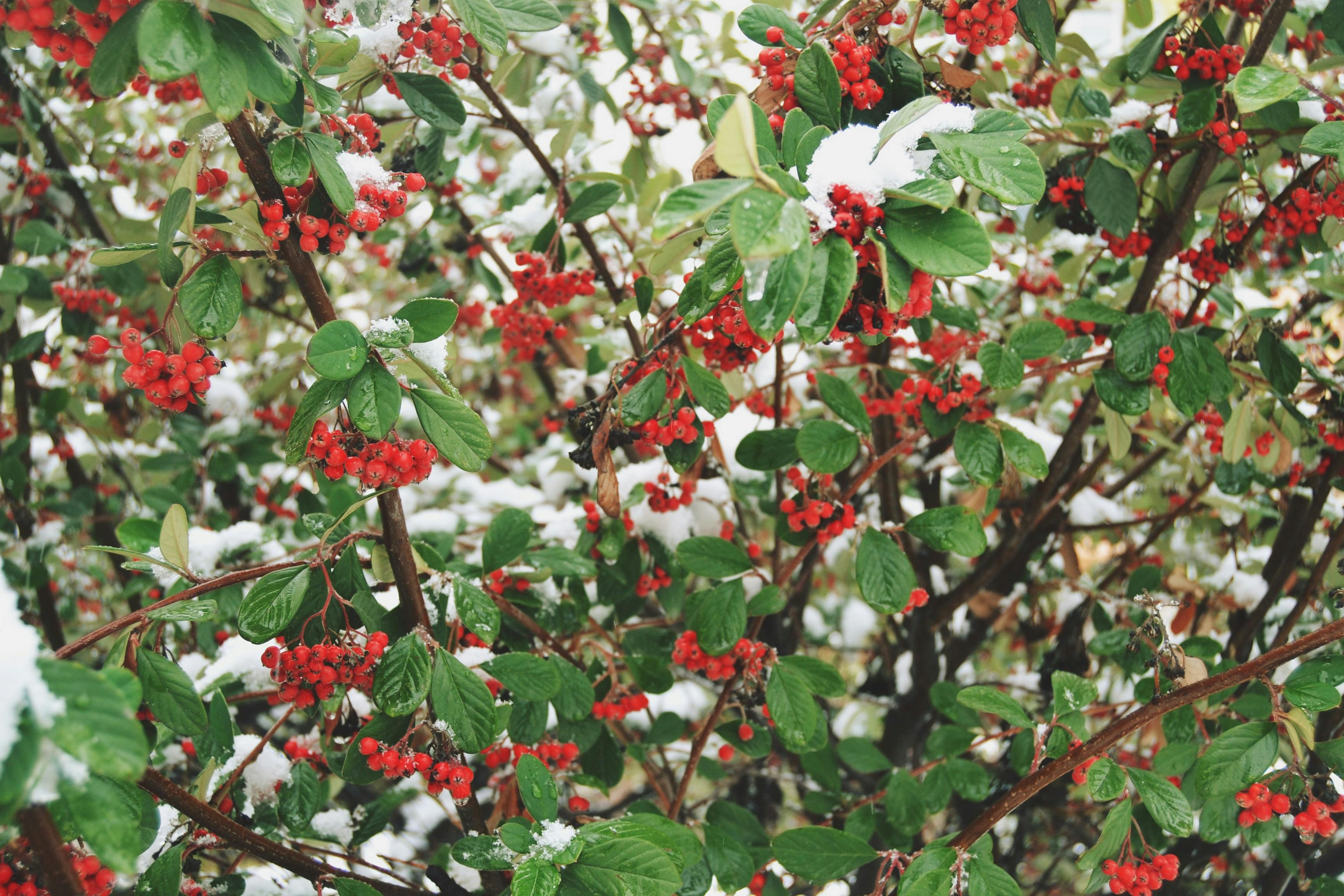Do blueberry bushes lose leaves in winter? This is an interesting question and one that has been asked by gardeners and horticulturalists alike for many years. The answer is yes, blueberry bushes do lose their leaves in winter. In this article, we will discuss the reasons why and what you can do to protect your blueberry bushes from the cold winter weather. We will also discuss how to care for your blueberry bushes throughout the year to ensure they remain healthy and productive.Yes, blueberry bushes do lose their leaves in winter. The leaves will turn to a yellow, orange, or red color before dropping off the bush. Blueberry bushes are deciduous and require cold temperatures during the winter months in order to produce berries in the spring and summer.
Reasons Why Blueberry Bushes Lose Leaves in Winter
Blueberry bushes typically lose their leaves during the winter season. This is a natural process that occurs each year as the temperatures drop and the days get shorter. There are a few reasons why this happens, and understanding them can help you keep your blueberry bushes healthy.
One of the primary reasons why blueberry bushes lose their leaves in winter is because of cold weather. When temperatures drop below freezing, blueberry plants enter into a state of dormancy. During this time, they stop producing new leaves and instead focus on preserving energy and resources to survive the winter season.
Another reason why blueberry bushes shed their leaves is to protect themselves from winds and snowfall. The outermost leaves are more susceptible to damage from strong winds or heavy snow accumulation, so shedding them helps prevent further harm to the plant.
Finally, blueberry bushes may lose their leaves due to nutrient deficiencies or other environmental stresses. If your plants are not getting enough nutrients or water, they may drop their leaves in order to conserve energy and resources so that they can stay alive during the winter months.
Understanding why blueberry bushes lose their leaves in winter can help you take better care of your plants and ensure that they remain healthy throughout the season. Be sure to provide adequate nutrition, protection from strong winds and heavy snowfall, and enough water for your blueberries to stay healthy all year round!
Leaf Loss in Blueberry Bushes
Leaf loss in blueberry bushes can occur for a variety of reasons. Most commonly, it is caused by environmental factors such as extreme temperatures, drought, and pests. In some cases, disease or nutrient deficiencies can also lead to leaf loss in blueberry bushes. Proper care and management can help prevent or minimize leaf loss in blueberry bushes.
Extreme temperatures can cause leaf loss in blueberry bushes. During summer months, high heat and humidity can cause leaves to wilt and drop off the plant. In winter months, cold temperatures can cause leaves to drop off the bush if they are not well insulated from the cold air.
Drought is another common cause of leaf loss in blueberry bushes. Without regular watering, the roots of the bush cannot absorb enough water to keep its leaves healthy and green. As a result, the leaves will eventually turn yellow and drop off the bush due to dehydration.
Pests are another potential cause of leaf loss in blueberry bushes. Insects such as aphids, spider mites, and scale insects can feed on the foliage of blueberry plants, causing it to turn yellow and eventually drop off the bush. Additionally, fungal diseases such as powdery mildew or anthracnose can infect blueberry plants and cause their leaves to fall off prematurely.
In some cases, nutrient deficiencies such as iron or zinc deficiency may also lead to leaf loss in blueberry bushes. These deficiencies can cause an imbalance of nutrients within the plant that will eventually lead to yellowing and dropping of its leaves if not corrected quickly enough.
Proper care and management is important for preventing or minimizing leaf losses in blueberry bushes. Watering regularly during dry periods will help ensure that roots are getting enough water for healthy foliage growth. Additionally, pruning away dead branches or diseased foliage will help keep your bush looking healthy year-round by eliminating any potential sources of infection or pest infestations. Finally, adding a fertilizer with iron or zinc may be beneficial for preventing nutrient deficiencies that can lead to premature leaf drop from your blueberry bush.
Preventing Leaf Loss in Blueberry Bushes
Blueberry bushes are a popular choice for gardeners looking to grow their own fruit. Unfortunately, blueberry bushes can suffer from leaf loss due to a variety of environmental and disease factors. Fortunately, there are steps that can be taken to prevent or reduce leaf loss in blueberry bushes.
The first step in preventing leaf loss is to ensure that your blueberry bush is planted in an area with proper drainage and air circulation. Blueberries do not tolerate wet feet, so the soil should not be overly damp or soggy. Additionally, it is important to ensure that the bush is not overcrowded by other plants or shrubs, as this can limit air flow and promote disease development.
It is also important to make sure your blueberry bush is receiving the right amount of water. Too much water can lead to root rot and cause leaves to wilt and drop off prematurely. On the other hand, too little water can cause stress on the plant which may also lead to leaf drop or wilting.
Fertilizing your blueberry bush with an organic fertilizer that contains nitrogen, phosphorus, and potassium will help keep it healthy and strong. This will help promote healthy foliage growth and reduce the risk of disease development which could cause leaf loss. Additionally, it is important to prune away old or dead foliage as this will help ensure adequate air circulation throughout the bush as well as reduce any disease development risk.
Finally, it is important to keep an eye out for signs of pests or diseases on your blueberry bush such as wilt, fungal spots on leaves, or insect damage. If you notice any of these issues it is best to take immediate action such as spraying with an organic pesticide or fungicide if necessary. This will help prevent further damage or spread of any pests/diseases which could lead to more significant leaf loss for your blueberry bush.
By taking these steps you should be able to prevent or at least minimize leaf loss in your blueberry bushes so you can enjoy a thriving crop of delicious berries!
Providing Care After Leaf Loss
Blueberry bushes require regular care and maintenance to ensure a successful harvest. When leaves are lost from the bush due to disease, pests, or other causes, it is important to take steps to help the bush recover and remain healthy. To help a blueberry bush after leaf loss, gardeners should prune away any dead branches or twigs, water the bush regularly, apply fertilizer, and use a mulch around the base of the bush.
Pruning Branches and Twigs
Pruning away dead branches and twigs is an important step in helping a blueberry bush recover from leaf loss. This will help promote healthy growth by removing diseased or damaged branches that would otherwise attract pests or spread disease. Pruning should be done carefully with pruning shears or loppers as needed.
Watering Regularly
Watering is essential for helping a blueberry bush recover from leaf loss. The soil should be kept evenly moist but not saturated with water. During hot summer months, it may be necessary to water more frequently to ensure adequate hydration for the plant. Soaker hoses can help provide deep watering throughout the root zone of the blueberry bush.
Fertilizing Correctly
Fertilizer can help promote healthy growth of a blueberry bush that has lost leaves due to disease or pests. A balanced fertilizer with equal parts of nitrogen, phosphorus, and potassium should be applied each spring at half strength according to manufacturer’s instructions. During the summer months, supplement with an additional application of nitrogen-rich fertilizer at full strength every 6 weeks.
Using Mulch Around Base
Using mulch around the base of a blueberry bush can help keep weeds down and retain soil moisture during dry spells. Organic mulches such as bark chips, straw, wood chips or chopped leaves work best for this purpose as they will slowly break down over time adding nutrients back into the soil as they decompose. Mulching also serves as insulation from extreme temperatures which can damage plants in extreme heat or cold weather conditions.

What Does a Healthy Blueberry Bush Look Like?
A healthy blueberry bush is full, lush, and vibrant. The leaves are bright green, with smooth edges and a glossy sheen. The branches will be strong and sturdy, with plenty of new growth evident throughout the year. The flowers should be abundant and full of life, as they are the precursor to beautiful blueberries come summertime. The berries should also look plump and juicy when ripe, so be sure to keep an eye out for them when it’s harvest season. A healthy bush is also free from pests or disease – these can weaken it over time if left unchecked.
Overall, blueberry bushes require a great deal of care and attention in order to stay healthy and strong. Make sure you’re fertilizing regularly with an appropriate fertilizer for your soil type, pruning back any dead or diseased branches, and watering deeply but not too frequently during the growing season. If you follow these steps, your blueberry bush should remain in top shape for many years to come!
How Does Winter Affect the Growth of a Blueberry Bush?
Winter can have a major effect on the growth of blueberry bushes. Cold weather, snow, and frost can all affect the growth of blueberry bushes. When temperatures drop below freezing, the leaves and flowers may die off, but if temperatures remain above freezing, the plant may be able to survive. In some cases, the plants may even continue to produce fruit in extreme cold weather.
In addition to cold weather, snow and ice can also have an impact on blueberry bushes. Heavy snowfall can weigh down branches, breaking them off and damaging the plant. Ice can also form around branches and block vital nutrients from reaching them. While some hardy plants may be able to survive these conditions, they will not thrive under these conditions.
Finally, frost can also have an effect on blueberry bushes in winter. Frost damage occurs when ice crystals form on leaves or flowers and disrupt their normal functioning. This damage can range from minor to severe depending on how long it lasts and how cold it gets outside. In some cases, frost damage can cause permanent damage to the plant if it occurs frequently during winter months.
Overall, winter can have a significant impact on the growth of blueberry bushes. Cold temperatures, snowfall, and frost all have potential to do harm to blueberry plants if they occur too often or for too long in a given season. To ensure healthy growth during winter months, extra care should be taken to protect blueberry bushes from harsh weather conditions like heavy snowfall or prolonged cold spells.
Cold Affects the Health of Blueberry Bushes
Blueberry bushes are cold-hardy plants that can thrive in cold climates. However, if temperatures drop too low, the health of your blueberry bush can be compromised. Cold temperatures can cause damage to the roots and leaves of the plant, leading to wilting, leaf drop, and other signs of poor health. Frost can also kill off flowers and young berries before they have a chance to mature.
To protect your blueberry bush from harsh cold temperatures, make sure you provide proper insulation and protection for your bush. Planting in a location that is sheltered from extreme winds can help prevent frost damage. Mulching around the base of the bush will help insulate the roots from sudden drops in temperature. If you live in an area with severe winters, you may want to consider using a row cover or other protective covering to prevent damage from extreme weather conditions.
Proper watering is also important for protecting your blueberry bush from cold weather. Make sure that your plant is getting enough water during periods of drought so that it does not become stressed and vulnerable to frost damage. Pruning back dead or damaged branches will also help promote healthy growth and reduce stress on the plant during the winter months.
By taking steps to protect your blueberry bush from cold temperatures and providing proper care throughout the growing season, you can ensure that your blueberry bush stays healthy and productive for many years to come!

Conclusion
Yes, blueberry bushes lose their leaves in the winter. This is a normal part of the bush’s life cycle. It is important to understand this process and prepare for it by providing the bush with enough nutrients and water to help it regrow its leaves in the spring. Planting blueberry bushes in areas that provide enough sunlight exposure will also help the bush survive through winter. With proper care, a blueberry bush can produce a bountiful harvest of berries for many years.
Overall, blueberry bushes are an excellent addition to any garden because of their hardy nature and delicious fruit. While it may seem like a hassle to have to prune back and cover the plant for winter, it is all worth it when you can enjoy the sweet taste of fresh-picked blueberries come summertime!



